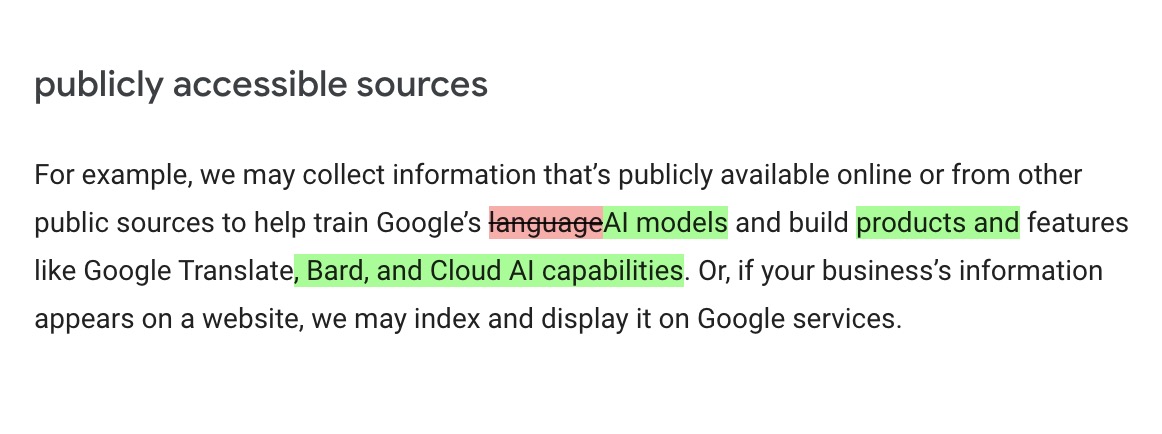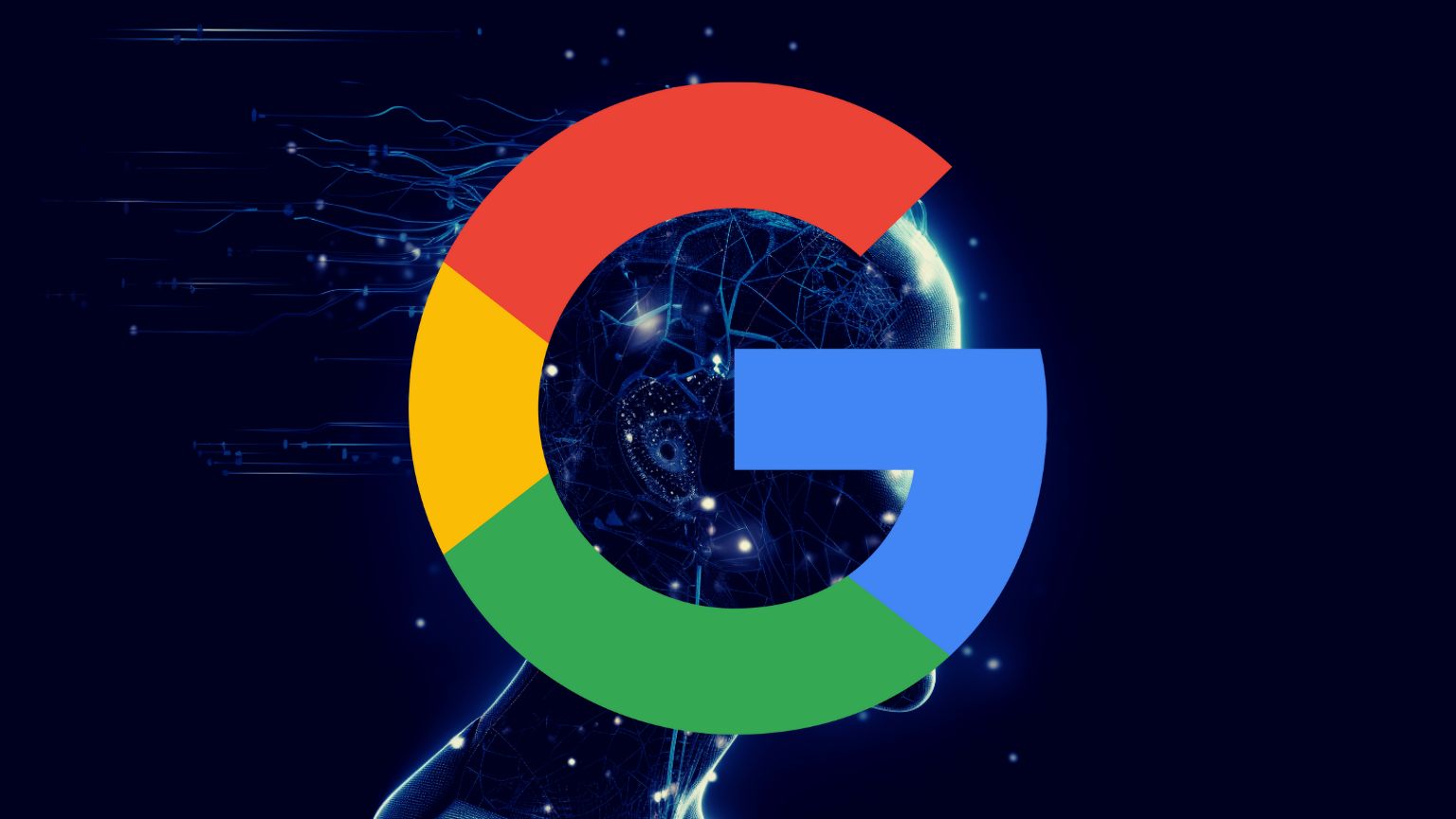Google has quietly revised its privacy policy, making it clear that the tech behemoth now claims the prerogative to mine virtually all content you share online for the development of its AI instruments.
As noted by Gizmodo, this development means that if Google can access your text, it can now seamlessly assimilate them into its data pool, with the likelihood of them being integrated into one of its chatbots.
The updated policy reads, “Google uses information to improve our services and to develop new products, features and technologies that benefit our users and the public,” highlighting that publicly accessible content may be employed to train Google’s AI models. The end goal is the construction and enhancement of products such as Google Translate, Bard, and Cloud AI capabilities.

Google’s revision in its policy language is noteworthy. It broadens the scope from using data exclusively “for language models” to utilizing it for “AI models.” It is also apparent that the updated policy specifies additional tools, including Bard and Cloud AI, which weren’t mentioned earlier.
What sets this policy change apart is its vast departure from the norm. Privacy policies customarily stipulate how businesses utilize data generated within their own platforms. However, Google’s novel approach seemingly treats the entire internet as its vast repository for data collection to bolster AI capabilities, agnostic to the platform where the content was originally posted. At the time of this article, Google has not issued any comments.
This development ushers in fresh privacy concerns. While users comprehend that their public posts are visible to all, the altered policy necessitates a reevaluation of the implications of sharing content online.
The landscape has shifted from merely who can view your content to the gamut of potential applications of this data. It is plausible that past blog posts or even decade-old reviews are now part of the data stream feeding AI systems like Bard and ChatGPT, which could potentially rehash this information in unforeseen and intricate ways.
One subtle yet critical aspect arising in this ChatGPT-influenced era pertains to the provenance of the data ingested by these voracious chatbots. Companies like Google and OpenAI have been avidly scraping extensive swathes of the internet to satiate their AI engines, and the legality of this process is murky. The judicial system is expected to grapple with intricate copyright issues in the near future, as these were scenarios more akin to science fiction until recently.
This policy overhaul by Google signals a paradigm shift in the handling of online content, and its ramifications on privacy and data ownership are yet to be fully grasped. Users and corporations alike will have to tread carefully in this new landscape as the lines between data ownership, privacy, and usage continue to blur.










